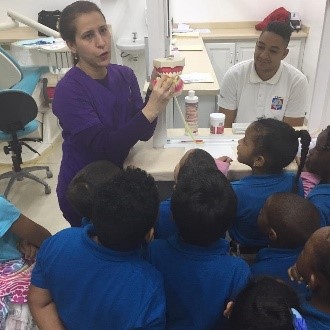A Step towards Biblical Integration
Transformational education – from a Christian perspective. Isn’t that what we’re about in TeachBeyond? Seeing God work through education to transform individuals and societies to be what He designed them to be? Absolutely!
Part of that “Christian perspective” on transformational education is teaching from a biblical worldview and helping our students develop such a worldview. In his book, Beyond Biblical Integration, Roger Erdvig explains that a biblical worldview is one in which a person’s thoughts, desires, and behaviours are aligned with God’s thoughts, desires, and behaviours as shown in His Word.[1] Erdvig shares the biblical framework of Creation – Fall – Redemption – Fulfillment that serves as a foundation for a biblical understanding of God’s world[2] and provides four questions which can serve us in analyzing the many facets of our world in light of that biblical framework:
- What is good in our culture that we can cultivate?
- What is missing that we can create?
- What is broken that we can cure?
- What is evil that we can help curb?[3]
In the classroom, when there are so many tasks to be completed and where it is all too easy to “get down to business” and set aside any add-on material or activities (especially in this time of stressful online learning), how can we nurture in our students a biblical understanding of what we are teaching them? How can we engage them in that important skill of reflection so they can build that biblical worldview? Here are a few ideas to get you thinking, ones that can be implemented in either in-person or online settings.
Discussion Questions
Leave some time at the end of a lesson to ask students how the particular topic they’re studying can be used to create/cultivate something good in the world or curb/cure something bad. This doesn’t have to be done each day – but once or twice throughout the week will allow students to get into a habit of seeing how a limited topic has a place in God’s broader world. Ask them as a whole group or split them into smaller groups (if online, use breakout groups) to process these questions with each other.
Journaling
Writing can and should be more than an academic exercise. In their article on using writing to combat traumatic experiences, Goodwin & Jones point out that it has been used as a therapy practice, as it helps individuals process their thoughts and experiences.[4] These authors also note that guided writing, with support from adults, is more effective than freewriting in processing experiences, and one suggestion they offer is using writing to share advice with another person. Response journaling can help students connect their learning with a biblical worldview and encourage thoughtful processing of the questions of how to cultivate, create, cure, or curb within the subject area. Students can also write letters of advice or explanation to help others see the subject matter in view of those questions. For younger learners or for learners who find writing overwhelming, journaling through drawing would work as well – have them draw out their responses or give illustrations for advice regarding the questions of how to use the subject matter to cultivate, create, cure, or curb.
Whiteboards
In our current world of online learning, using an online whiteboard can provide an interactive substitute for in-person activities. (A regular poster board could be used for in-person classes.) Students can collaborate by creating original collages, posters, drawings, or text responses to synthesize their learning and consider how it relates to cultivating, creating, curing, or curbing something in our world.
When students are given the opportunity to develop a habit of reflection that considers how all of learning and all of life fits into God’s purposes, desires, and actions, it is truly transformational. It allows them the chance to focus their attention on the God Who transforms, the God Who cultivates and creates good in our world and Who cures and curbs the evil that taints it.

Esther Burnham
School Services Conference Coordinator
TeachBeyond Global
[1] Erdvig, Roger C. S. Beyond Biblical Integration: Immersing You and Your Students in a Biblical Worldview, Summit Ministries, 2020, p. 10.
[2] Ibid, pp. 10-11, 48-52
[3] Ibid, pp. 59-64. Erdvig adapts these questions from John Stonestreet and Warren Smith’s work in Restoring All Things: God’s Audacious Plan to Change the world through Everyday People, Baker Books, 2015.
[4] Goodwin, Bryan, and Lisa M. Jones. “A ‘Write’ Way to Address Trauma.” Educational Leadership, Oct. 2020, pp. 74-75.
Photo Credits: Collaboration via Shutterstock.





